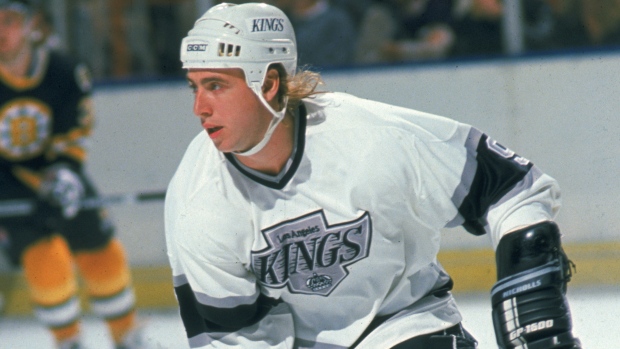Nov 20, 2014
Westhead: NHL says players in concussion lawsuit should have "put two and two together"
After a group of former National Hockey League players went to court and sued the league over how it handled concussions and head trauma, the league has filed its first significant response to the litigation. As TSN Senior Correspondent Rick Westhead reports, the league says that players who were forced to retire early because of concussions and other head injuries ought to have been able to "put two and two together," thanks to a number of newspaper and magazine stories and other news reports.

After a group of former National Hockey League players went to court and sued the league over how it handled concussions and head trauma, the league has filed its first significant response to the litigation.
In the initial lawsuit, filed in November 2013, players contended that the NHL did not do enough to protect them from head injuries before creating a committee to study head trauma in 1997. Even after that, the players charge the committee's findings were not adequately shared with players.
The NHL is firing back in a set of legal documents filed in federal court in Minnesota.
The league says that players who were forced to retire early because of concussions and other head injuries ought to have been able to "put two and two together," thanks to a number of newspaper and magazine stories and other news reports.
"Publicly available information related to concussions and their long-term effects, coupled with the events that had transpired – i.e., the players incurring head injuries – should have allowed (players) to put two and two together," the NHL says in its court filings, which were obtained by TSN.
The league also says it should not be required to pay for medical monitoring of former players who say they have symptoms of long-term brain injuries.
The NHL players - the most prominent of whom include former Red Wings star Joe Murphy, one-time Toronto Maple Leaf Gary Leeman and former Los Angeles Kings star Bernie Nicholls - filed the suit after a group of nearly 4,500 former NFL players reached a settlement with the NFL over similar concussion-related complaints.
The NFL players are expected to be paid about $1 billion, a lawyer working on the case told TSN.
In its legal filings, obtained by TSN, the NHL says the court should dismiss the case because it's taken too long for players to file their complaints.
"The alleged injuries that form the basis for this suit occurred many years - and even decades – ago," the NHL's motion to dismiss says. "There is no allegation that plaintiffs were not aware of those injuries when they occurred; nor could there be in light of the fact that a physical blow to the head is the opposite of a latent injury."
This would mean that Dave Christian, for instance, should have brought his claim by 2000 since he retired from the NHL in 1994; Reed Larson stopped playing hockey in 1989 so he should have filed his lawsuit by 1995, the NHL said.
"The fact that (Christian and Larson) allege that the injuries were more extensive than they realized at the time they sustained them does not extend the limitations period," the NHL said.
The league also said the players have not done enough to support their charge that the league purposefully withheld information from players about the risk and long-term effects of brain trauma.
The players "fail to identify the allegedly partial or ambiguous communications regarding safety or the risk of head injuries, the specific information that purportedly was omitted or who was responsible for the communications," the NHL said. "They also fail to plead when the allegedly misleading communications occurred or why any communication was misleading, incomplete or required clarification."
The league said it shouldn't have to pay for medical monitoring for players because those who have asked for it all live in U.S. states that prevent so-called stand-alone claims for medical monitoring.
Medical monitoring, the league notes, is a request for relief in the form of future medical expenses and the U.S. states involved allow that kind of claim only when the plaintiff can "show a reasonable probability that such medical expenses will be incurred in the future."
The NHL also says the claim should be dismissed because health and safety issues fall under the purview of the league's collective labour agreement with the NHLPA.
The NHL said under terms of its CBA, that players have a responsibility to report injuries to their teams and submit themselves for examination. The CBA also addresses the rights of a player to receive his medical records, the NHL said in its legal filings.
The judge overseeing the players' lawsuit will hear oral arguments about the NHL's motion on Jan. 8 and will decide whether to dismiss the case by April.
A person familiar with the matter said about 40 former NHL players have now signed up as named plaintiffs, compared to 4,500 in the NFL case. "The NHL thinks this is indicative of a lack of support for the lawsuit," a source told TSN. "That perceived lack of support in the court of public opinion will help the NHL decide how to approach the case."
The source told TSN some players who have concussion symptoms are loath to join the lawsuit, "because they still like reliving the glory days and being invited to old-timer games and they worry they will be cut out if they do this."

